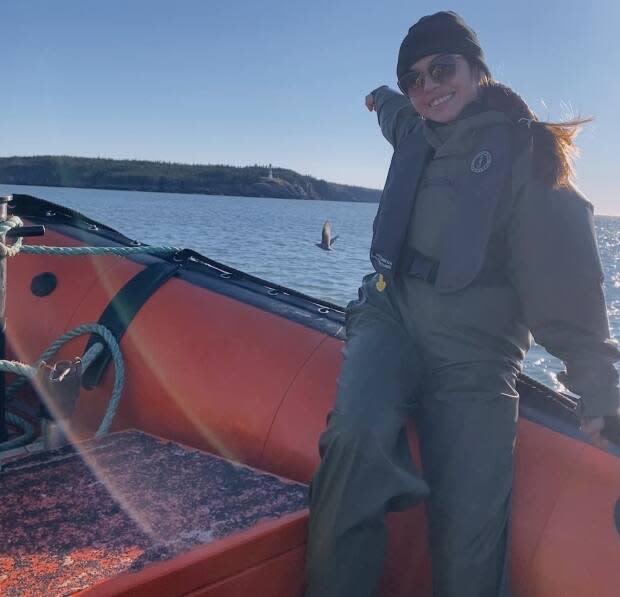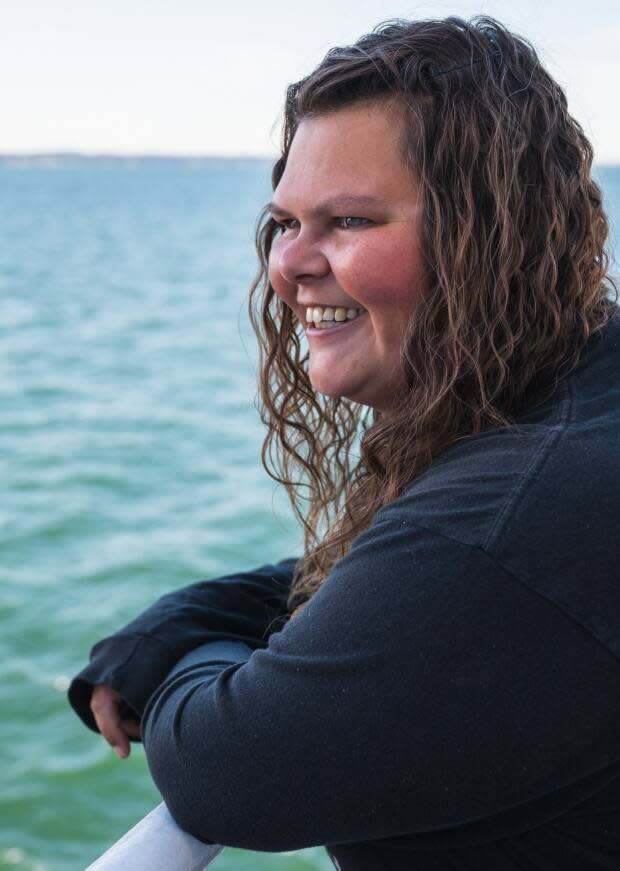Wolastoqey youth learn about marine conservation research aboard science vessel

A four-day Bay of Fundy expedition earlier this month was life-changing for one Wolastoqey youth.
"If I didn't get on that ship I wouldn't have gotten the opportunity to do everything I did on there," said Korey Lyons, from Sistansisk (St. Mary's First Nation), near Fredericton.
"I just never seen the water the same."
The 20-year-old joined three other Wolastoqey youth aboard the Polar Prince as part of a research voyage held by the Students on Ice Foundation.
The Wolastoqey cohort boarded the 76-metre vessel for the Bay of Fundy portion of the main expedition Sept. 13-18, exploring areas around Grand Manan Island, Campobello Island, and Wolf Island.
The vessel's nearly month-long main expedition brought together students, researchers, artists and media and also partnered with some Mi'kmaw and Passamaquoddy communities.
The Wolastoqey cohort learned about marine conservation, and were involved in marine biology research, microplastic surveys and beach cleanups.

Lyons said she learned how to identify male and female lobsters by the roughness of the tail. It was the first time she got to board a boat and said she would recommend the experience to anyone.
"It was really thrilling for me," said Lyons.
She said she hopes to pursue a career in marine biology.
"I didn't want to get off," said Lyons.
"I wanted to stay and continue the journey and see what discoveries I could find out."
The other Wolastoqey youth were Darrenn Saulis, Paul Sappier, and Lindsay Davidson.

Davidson said the trip opened her eyes to how pervasive microplastics are in the ocean.
"It kind of opened up a whole new world," said Davidson.
She said she hopes people realize just how much litter runs off into the ocean.
Davidson said her biggest challenge was being away from her three kids during the voyage but the trip left her inspired.
Ken Paul, who helped co-ordinate some of the research, said he was proud of how quickly the youth got used to being on the ocean.
"They took to it, like fish to water," said Paul.
Paul said overall it was a wonderful experience. He said the scientists were willing to teach but also wanted to know about Wolastoqey culture and knowledge, too.
He said the biggest challenge they faced was the time of the year. Paul said many of the youth had to work around job and school schedules but he hopes that it's worked out in the future.
"It was one of the few times that our youth had experience working in the science sector within our traditional territories," said Paul.


